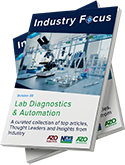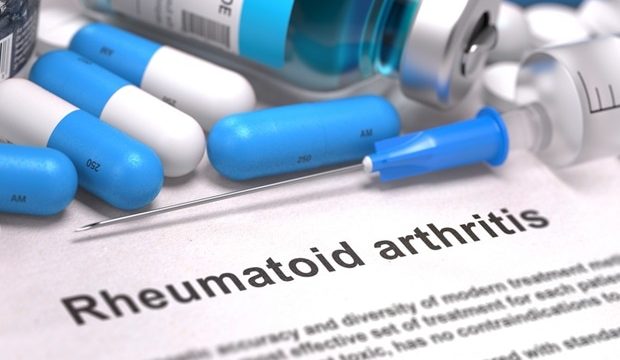People afflicted with autoimmune diseases may someday receive help through treatments now under development by a Lawrence Livermore National Laboratory (LLNL) licensee and its' collaborations with two major pharmaceutical companies.
In late 2017, LLNL licensed a biomedical technology called nanolipoprotein particles (NLPs), which can deliver vaccines and drugs inside the cells in the human body, to Ann Arbor, Michigan-based EVOQ Therapeutics.
Over the past two years, EVOQ Therapeutics has announced two major agreements with Gilead Sciences Inc. and Amgen Inc. to work on the preclinical development of novel medicines to combat autoimmune diseases. Part of the LLNL-developed NLP technology could be used as the vaccine delivery platform.
In January, Foster City, California-based Gilead Sciences and EVOQ announced they will collaborate on the preclinical development of vaccines to treat rheumatoid arthritis and lupus. The EVOQ technology is designed to enable lymph targeted delivery of disease-specific antigens for autoimmune diseases.
Under its agreement with Gilead Sciences, EVOQ could receive up to $658.4 million in upfront, option exercise and other payments, in addition to royalties on product sales.
In its expanded pact with Amgen, EVOQ Therapeutics granted the Thousand Oaks California-based firm exclusive rights to selected autoimmune programs and received an upfront payment and other payments potentially totaling more than $240 million, along with royalties on sales of resulting therapies. Amgen is working to develop vaccines for three autoimmune diseases.
The impact of LLNL's technologies has been tremendous and we appreciate the opportunity to work alongside such a talented and dedicated organization. Our partnership with LLNL has enabled us to tackle complex challenges and may help us bring innovative solutions to patients with autoimmune diseases."
David Giljohann, EVOQ's chief executive officer
Yash Vaishnav, a business development executive in the Lab's Innovation and Partnerships Office, who negotiated the 2017 license agreement with EVOQ Therapeutics and who continues to manage the development of the intellectual property portfolio in this area as well as industry partnerships, said the intellectual property developed with taxpayer funding by LLNL scientists is now moving toward preclinical studies for developing vaccines for several major autoimmune diseases.
Lab Diagnostics and Automation eBook

"This is one of the first biomedical technologies in the areas of vaccines and therapeutics from the Department of Energy complex to enter preclinical trials," Vaishnav said. "While there are drugs available for the treatment of autoimmune diseases, there are currently no vaccines approved by the U.S. Food & Drug Administration for the prevention or treatment of autoimmune diseases."
Developed by LLNL biomedical researchers over a decade starting in 2005, NLPs are water-soluble molecules that are 5 to 30 billionths of a meter in size and resemble HDL particles, which are the human body's good cholesterol. The NLPs were developed with about $7.4 million of Laboratory Directed Research and Development funds, which is internal research money.
Among the Livermore inventors on the licensed patents are LLNL biologist Nicholas Fischer, Craig Blanchette, a biophysicist now at Genentech; and former LLNL bioorganic chemist Paul Hoeprich, who has retired.
"We are very pleased that the research we conducted with the support of LLNL is now helping companies develop therapies for the millions of individuals with autoimmune diseases," Fischer said.
Elsie Quaite-Randall, the interim director of the Lab's Innovation and Partnerships Office, notes that the goal of the Lab is to transfer technology to industry for the benefit of the U.S. economy.
"We are excited to see LLNL technology move from 'idea to innovation' through our partnership with EVOQ," Quaite-Randall said.
In other efforts, LLNL scientists are looking at using NLPs to deliver a new vaccine inside cells in the human body. They are working with researchers from three other institutions to develop a multi-pathogen vaccine that will protect against three diseases, tularemia, melioidosis and plague, under a five-year grant from the Defense Threat Reduction Agency.
Lawrence Livermore National Laboratory (LLNL)
Posted in: Drug Discovery & Pharmaceuticals | Medical Condition News
Tags: Arthritis, Cholesterol, Drugs, Exercise, Food, Laboratory, Lupus, Melioidosis, Pathogen, Plague, Preclinical, Research, Rheumatoid Arthritis, Technology, Therapeutics, Tularemia, Vaccine
Source: Read Full Article
